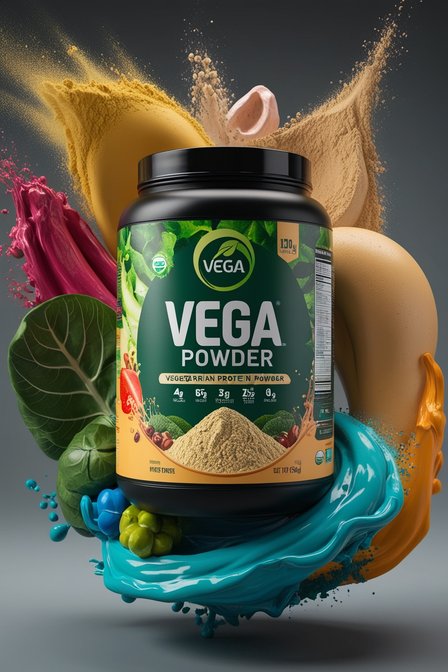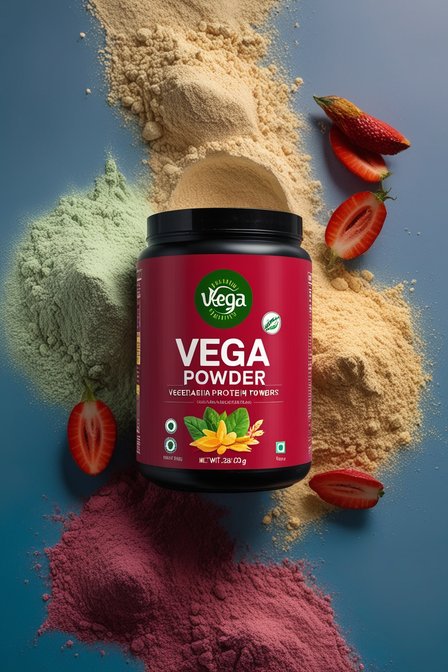Low Carb Vegan Protein: A Comprehensive Guide
Introduction to Low Carb Vegan Protein
In recent years, the dietary landscape has evolved significantly, with more people exploring the benefits of various eating patterns. Among these, low carb and vegan diets have garnered considerable attention for their potential health benefits and ethical considerations. Combining these two approaches into a low carb vegan diet can seem challenging, especially when it comes to meeting protein needs. This guide delves into the world of low carb vegan protein, exploring sources, benefits, and practical tips for integrating it into your diet.
Understanding Low Carb Vegan Diets
A low carb diet focuses on reducing carbohydrate intake, typically to less than 20-50 grams per day, to promote ketosis, a state where the body burns fat for fuel instead of carbohydrates. A vegan diet excludes all animal products, including meat, dairy, and eggs, relying solely on plant-based foods. When combined, a low carb vegan diet necessitates careful planning to ensure adequate nutrition, particularly protein, which is crucial for muscle maintenance, immune function, and overall health.
The Importance of Protein in a Low Carb Vegan Diet
Protein is a macronutrient essential for numerous bodily functions, including muscle repair, enzyme production, and hormone regulation. For those following a low carb vegan diet, obtaining sufficient protein without exceeding carbohydrate limits requires attention to food choices. Plant-based protein sources often contain carbohydrates, making it crucial to select low carb options to maintain dietary goals.
Top Low Carb Vegan Protein Sources
Tofu and Tempeh
Tofu and tempeh, both derived from soybeans, are excellent low carb vegan protein sources. Tofu is made by coagulating soy milk, resulting in a versatile, mildly flavored product that can be used in various dishes. Tempeh, on the other hand, is made from fermented soybeans, offering a firmer texture and a nutty flavor. Both options are rich in protein and contain minimal carbohydrates, making them ideal for a low carb vegan diet.
Seitan
Seitan, also known as wheat gluten, is another high-protein, low carb option. Made from gluten, the main protein in wheat, seitan has a meat-like texture and can be flavored and cooked in numerous ways. It is an excellent protein source for those who can tolerate gluten and want a versatile ingredient to mimic the texture of meat in vegan dishes.
Hemp Seeds
Hemp seeds are not only rich in protein but also provide essential fatty acids and fiber. With a nutty flavor, they can be sprinkled on salads, blended into smoothies, or used in baking. Hemp seeds contain minimal carbohydrates, making them a valuable addition to a low carb vegan diet.
Pumpkin Seeds
Pumpkin seeds, or pepitas, are another nutritious option, offering protein, healthy fats, and minerals such as magnesium and zinc. They can be eaten raw, roasted, or added to various dishes, providing a crunchy texture and a nutritional boost without significantly increasing carbohydrate intake.
Chia Seeds
Chia seeds are small but mighty when it comes to nutrition. They are packed with protein, fiber, and omega-3 fatty acids while being low in carbohydrates. When mixed with liquid, chia seeds form a gel-like consistency, making them a versatile ingredient for puddings, smoothies, and baking.
Nutritional Yeast
Nutritional yeast is a deactivated yeast that is rich in protein, B vitamins, and fiber. It has a cheesy, nutty flavor, making it a popular ingredient in vegan cooking. Nutritional yeast can be sprinkled on popcorn, stirred into sauces, or used as a seasoning to add a savory, umami taste to dishes.
Almonds
Almonds are a protein-rich nut that provides healthy fats, fiber, and essential vitamins and minerals. While they do contain some carbohydrates, the amount is relatively low, making them suitable for a low carb vegan diet. Almonds can be eaten raw, roasted, or used in various recipes.
Benefits of Low Carb Vegan Protein
Weight Management
One of the primary benefits of a low carb vegan diet is weight management. High-protein, low carb foods can help increase satiety, reducing overall calorie intake and promoting weight loss. Additionally, plant-based diets are typically lower in calories and fat compared to animal-based diets, further supporting weight management efforts.
Improved Blood Sugar Control
Reducing carbohydrate intake can help stabilize blood sugar levels, making a low carb vegan diet beneficial for individuals with diabetes or insulin resistance. Plant-based protein sources, such as tofu, tempeh, and seeds, have a low glycemic index, meaning they have a minimal impact on blood sugar levels.
Enhanced Nutrient Intake
A well-planned low carb vegan diet can be rich in vitamins, minerals, and antioxidants. Plant-based protein sources often come with additional nutrients, such as fiber, healthy fats, and phytochemicals, which contribute to overall health and well-being. Consuming a variety of these foods ensures a balanced nutrient intake.
Ethical and Environmental Benefits
Choosing a vegan diet aligns with ethical considerations related to animal welfare and environmental sustainability. Plant-based diets typically have a lower environmental footprint compared to animal-based diets, as they require fewer resources and produce fewer greenhouse gas emissions. By opting for low carb vegan protein sources, individuals can support ethical and environmental goals while maintaining a healthy diet.
Practical Tips for Incorporating Low Carb Vegan Protein
Meal Planning
Effective meal planning is essential for successfully following a low carb vegan diet. Focus on incorporating a variety of protein sources to ensure a balanced intake of essential amino acids. Plan meals and snacks ahead of time to avoid relying on high-carb convenience foods.
Cooking Techniques
Explore different cooking techniques to make the most of low carb vegan protein sources. For example, marinating tofu or tempeh can enhance their flavor, while roasting nuts and seeds can add a satisfying crunch to dishes. Experiment with herbs, spices, and sauces to create delicious and varied meals.
Reading Labels
When purchasing packaged foods, always read the labels to check for hidden carbohydrates and added sugars. Opt for products with minimal ingredients and avoid those with high-carb fillers or additives. This practice helps maintain the low carb aspect of the diet while ensuring adequate protein intake.
Portion Control
While plant-based protein sources are generally healthy, it is important to practice portion control to stay within carbohydrate limits. Be mindful of serving sizes, especially for nuts and seeds, which can add up in calories and carbs if consumed in large quantities.
Supplementing Wisely
Depending on individual needs and dietary restrictions, supplementation may be necessary to meet certain nutritional requirements. For example, vegans may need to supplement with vitamin B12, iron, or omega-3 fatty acids. Consult with a healthcare professional or a registered dietitian to determine if supplementation is needed and to find suitable options.
Overcoming Common Challenges
Finding Variety
One common challenge of a low carb vegan diet is finding variety in protein sources. To overcome this, experiment with different foods and recipes to keep meals interesting. Try incorporating international cuisines, such as Asian or Mediterranean dishes, which often feature plant-based proteins and can be easily adapted to be low carb.
Dining Out
Dining out on a low carb vegan diet can be challenging, but it is not impossible. Research restaurants ahead of time to find vegan-friendly options, and don't hesitate to ask for modifications to fit your dietary needs. Many restaurants are accommodating and can provide customized meals upon request.
Social Situations
Navigating social situations, such as family gatherings or parties, can be tricky on a low carb vegan diet. Prepare ahead by bringing a dish to share that meets your dietary requirements. This ensures you have something to eat while also introducing others to delicious low carb vegan options.
Staying Informed
Stay informed about new low carb vegan products and trends by following blogs, social media accounts, and online communities dedicated to this lifestyle. Continuous learning and staying updated with new recipes and products can help maintain motivation and variety in your diet.
Conclusion
Incorporating low carb vegan protein into your diet is not only achievable but also offers numerous health benefits, including weight management, improved blood sugar control, and enhanced nutrient intake. By understanding the best protein sources, planning meals effectively, and overcoming common challenges, you can successfully follow a low carb vegan diet while supporting ethical and environmental goals. Embrace the journey with creativity and an open mind, and enjoy the diverse and nutritious options available in the world of low carb vegan protein.



